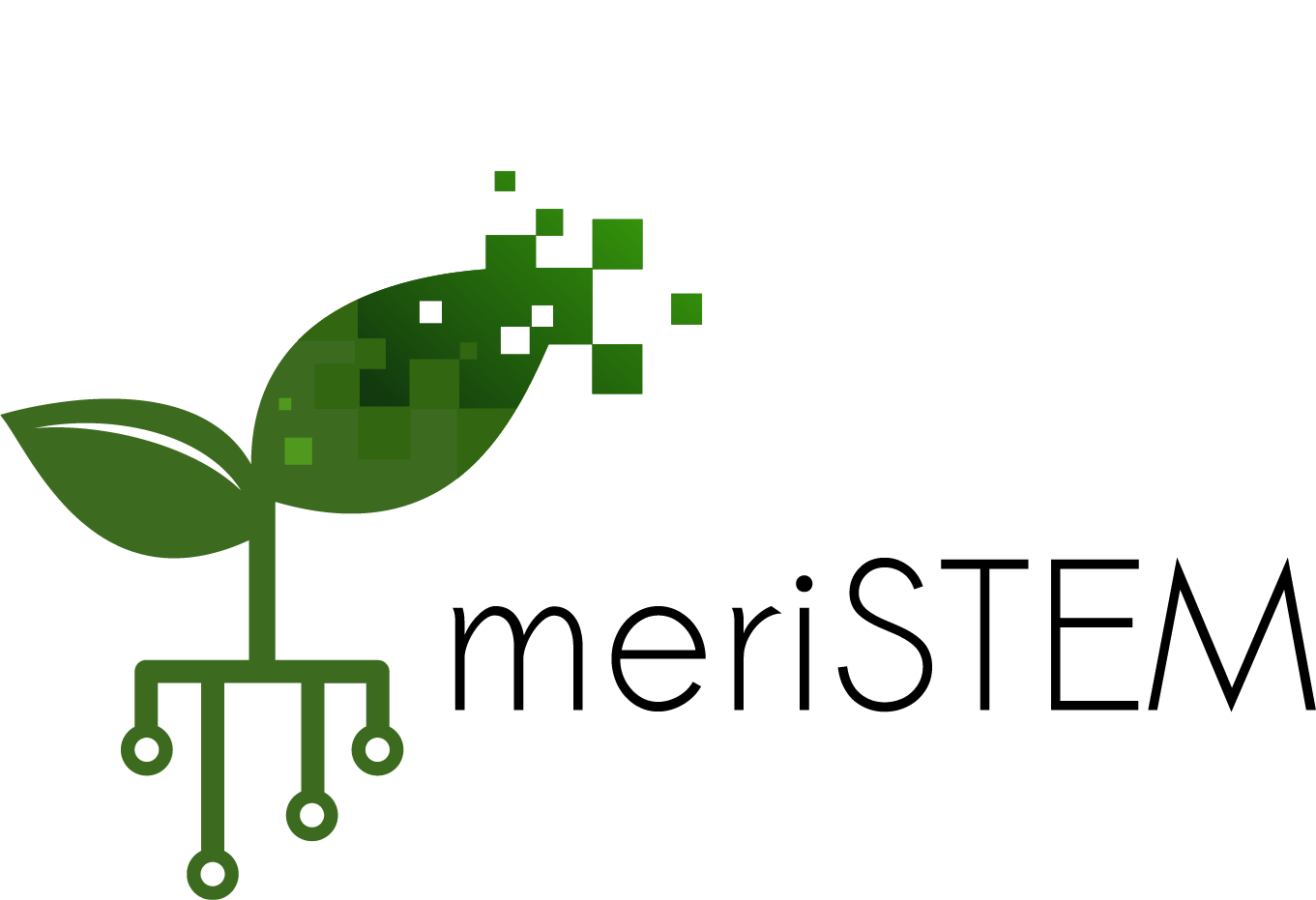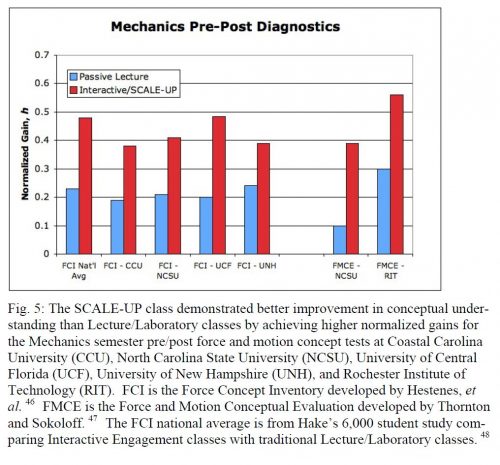The Student-Centered Activities for Large Enrollment Undergraduate Programs (SCALE-UP) Project (Beichner, et al. 2007)
summary
The SCALE-UP project pioneered active learning, flipped classroom strategies and intentional classroom environments for tertiary STEM education in the early 2000s. The project was born out of North Carolina State University physics department, but their dramatic successes meant that it quickly became a collaboration across universities in the United States and globally. The project continues and over 400 institutions have shared their developments to inform others through the SCALE-UP website.
for meristem teachers
Comparison studies of SCALE-UP implementation in many different universities and over more than five years show that with respect to traditional teaching formats:
- Conceptual understanding is increased
- The top third of the class show the greatest improvement in conceptual understanding
- Ability to solve problems is as good or better
- Attitudes are improved
- Class attendance is higher, typically >90%
- Failure rates are drastically reduced, especially for women and minorities
- Performance in the second semester physics class is improved, whether taught traditionally or in SCALE-UP [methods]
Beichner, R., Saul, J.M., Abbott, D.S., Morse, J.J., Deardorff, D.L., Allain, R.J., Bonham, S.W., Dancy, M.H. & Risley, J.S. (2007). The Student-Centred Activities for Large Enrolment Undergraduate Programs (SCALE-UP) Project, Physics Education Research, Vol. 1, Issue 1.

